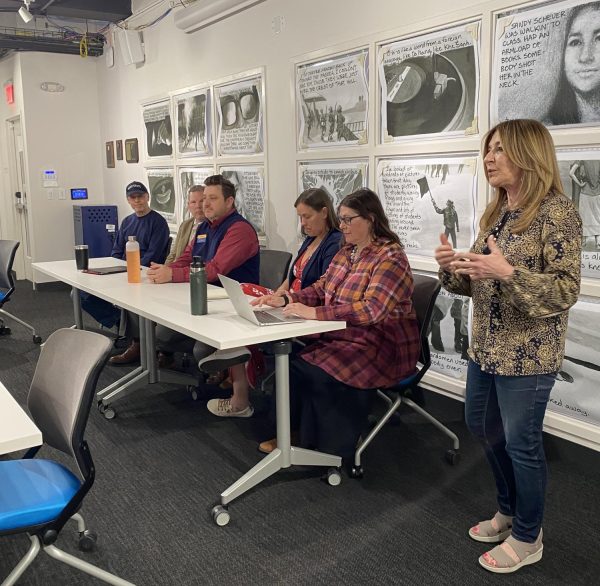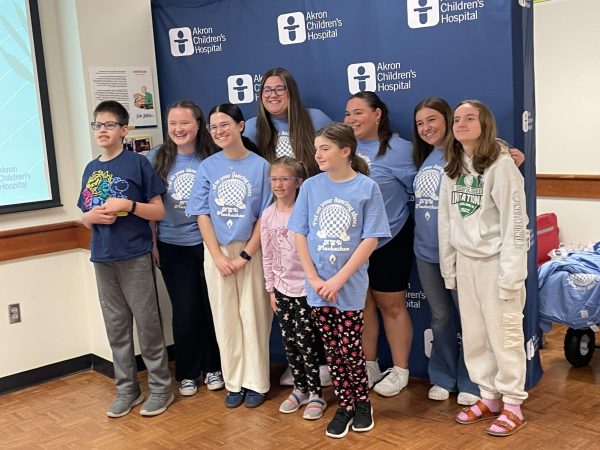Greek students work to break stereotypes
March 1, 2006
Sunny Brick is not the sort of sorority girl that MTV had in mind.
MTV’s “Sorority Life,” might have expected Brick and her sisters to be ditzy prima donnas who spend most of their time consuming copious amounts of alcohol. In this case – and, Brick said, in most cases – the expectations are wrong.
Brick, senior education and mathematics major, is the former president of Delta Gamma sorority. She is also the Undergraduate Student Senate’s senator for student relations, a former Kent State Student Ambassador and a member of the Kent State Education Association, among other things.
“People haven’t taken the time to get to know Greeks,” Brick said. “They only pay attention to the news, which usually only covers the bad part of Greek life.”
Greek life at Kent State puts a heavy emphasis on leadership, said Bill Ross, a member of Delta Upsilon and executive director of the Undergraduate Student Senate.
Greeks’ involvement can be found all over campus, as Greek students hold leadership positions and are members of various organizations outside the Greek community. In fact, all but one member of the Undergraduate Student Senate is involved in a Greek organization.
Academics are also strongly emphasized, Brick said. The Panhellenic Council, the executive board of the campus sororities, includes a position specifically designed to oversee sororities’ academic progress. Brick said sororities reward members who do well academically each semester and that poor grades can jeopardize a chapter’s integrity.
Megan Sedello, a junior speech pathology and psychology major and a member of Delta Zeta, called the “ditzy sorority girl” label a stigma that falsely portrays sorority women.
“Once you get past the stereotypes to see what sorority life is all about, you see the real bonds of sisterhood,” Sedello said. Sedello is also a USS senator and a member of Omicron Delta Kappa honors fraternity.
Ross said most people’s ideas about Greeks come from the media.
“This stereotype of fraternity members being alcohol-happy, beefed-up, no-brain guys developed from portrayals in movies in the ’80s and ’90s,” said the senior economics major. He said although at one time this ideal might have held true, fraternity men today strive to overcome that label by becoming active members of their communities.
“I think there’s a little bit of resentment,” Ross said of critics of the Greek system. “We aren’t portraying the stereotypes they’d like us to be portraying.”
Contact Greek life reporter Kate Bigam at [email protected].
























